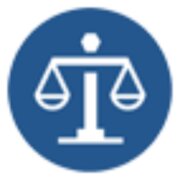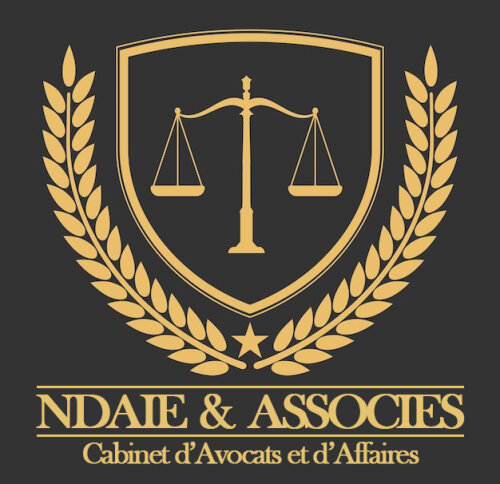Best Office Solutions Lawyers in DR Congo
Share your needs with us, get contacted by law firms.
Free. Takes 2 min.
Or refine your search by selecting a city:
List of the best lawyers in DR Congo
About Office Solutions Law in DR Congo
The Democratic Republic of Congo (DR Congo) has been experiencing a robust development in economic activities, and this includes the dynamic sector of office solutions. This field encompasses a wide range of services including office leasing and sales, interior design, IT infrastructure, communication systems, and office supplies. Navigating the legal landscape in the DR Congo for these services requires an understanding of both local laws and international business practices.
Office solutions laws in DR Congo have adaptations to accommodate the growing demand for modern workspaces while protecting both clients and service providers. This legal framework ensures that transactions and interactions are fair, reliable, and transparent.
Why You May Need a Lawyer
Legal assistance in office solutions may be necessary for various reasons. Common situations include:
- Negotiating and drafting lease agreements for office spaces.
- Handling disputes between tenants and landlords regarding office properties.
- Ensuring compliance with local regulations and zoning laws.
- Protecting intellectual property related to innovative office designs and systems.
- Managing contracts for purchasing office supplies and technology services.
- Resolving issues of employee rights within office environments.
Having a lawyer can provide assurance that your interests are protected and that your operations comply with DR Congo's legal standards.
Local Laws Overview
There are several key aspects of local laws in DR Congo that are particularly relevant to office solutions:
- Lease and Property Law: Govern the lease arrangements for office premises, including terms, tenure, and renewal processes.
- Commercial Contracts: Regulations covering the formulation and execution of business contracts in office services.
- Employment Law: Employment regulations vital for managing workplace conditions, employee rights, and obligations in office settings.
- Environmental and Construction Laws: Codes and standards that affect the layout, safety, and compliance of office spaces.
- Business Registration and Licensing: Requirements for registering businesses and acquiring necessary permits for operations related to office solutions.
Frequently Asked Questions
What is the process for leasing office space in DR Congo?
The process typically involves negotiating terms with a landlord, drafting a lease agreement, and complying with local municipal regulations. It’s advisable to have a legal expert review all documents.
How can I ensure my office solution contracts are legally binding?
Contracts should be drafted following DR Congo's commercial laws, including clear terms, mutual acceptance, and signatures. Having a lawyer assist in drafting can ensure legality and enforceability.
What should I know about environmental compliance for my office in DR Congo?
You need to adhere to environmental standards, which include proper waste management and energy efficiency. Local environmental laws and standards should be incorporated into office design and operation.
Are there specific mediation services available for office lease disputes?
Yes, mediation services exist and often serve as an effective means to resolve office lease disputes outside the court. Legal counsel can guide you to reputable mediators.
What are my rights as a tenant in an office space?
Tenants have rights to a safe working environment, proper maintenance, and fair treatment under the lease. Detailed examination of tenant rights can be done with a legal consultant.
Do I need special permits for office renovations?
Yes, some modifications may require permits, especially if they affect the building’s structure or need regulatory compliance. Consulting with local authorities and legal counsel is recommended.
How do labor laws impact my office operations in DR Congo?
Labor laws regulate employment conditions, safety standards, and employee benefits. Understanding these laws is vital to maintaining legal and ethical workplace practices.
What steps should I take if facing eviction from office premises?
You should seek immediate legal counsel to understand your rights and obligations and explore possible grounds to challenge the eviction if it’s unjust.
How long typically does it take to resolve office-related legal disputes?
It varies depending on the complexity of the issue, but legal proceedings can be lengthy if they go to court. Alternative dispute resolution methods can often provide a quicker solution.
Is foreign ownership allowed in the office solutions sector?
Foreign ownership is permitted, but it often involves specific legal processes and adherence to investment regulations in DR Congo.
Additional Resources
If you need further assistance or information, you might consider contacting the following resources:
- Ministry of Industry: Provides guidelines and support for businesses and commercial activities.
- Chamber of Commerce of DR Congo: A useful resource for business practices and networking.
- Local Legal Aid Clinics: Offer initial legal advice and support for commercial disputes.
- Environmental Management Agency: Can guide compliance with environmental standards and permits.
Next Steps
If you find yourself in need of legal assistance in the office solutions field, consider taking the following steps:
- Consult with a licensed local attorney who specializes in office solutions and business law.
- Gather all relevant documents and contracts before initial consultations with legal advisors.
- Stay informed of any changes to local laws and regulations affecting your business operations.
- Reach out to professional associations and networks in DR Congo for recommendations and support.
By being proactive and informed, you can navigate the legal aspects of office solutions effectively.
Lawzana helps you find the best lawyers and law firms in DR Congo through a curated and pre-screened list of qualified legal professionals. Our platform offers rankings and detailed profiles of attorneys and law firms, allowing you to compare based on practice areas, including Office Solutions, experience, and client feedback.
Each profile includes a description of the firm's areas of practice, client reviews, team members and partners, year of establishment, spoken languages, office locations, contact information, social media presence, and any published articles or resources. Most firms on our platform speak English and are experienced in both local and international legal matters.
Get a quote from top-rated law firms in DR Congo — quickly, securely, and without unnecessary hassle.
Disclaimer:
The information provided on this page is for general informational purposes only and does not constitute legal advice. While we strive to ensure the accuracy and relevance of the content, legal information may change over time, and interpretations of the law can vary. You should always consult with a qualified legal professional for advice specific to your situation.
We disclaim all liability for actions taken or not taken based on the content of this page. If you believe any information is incorrect or outdated, please contact us, and we will review and update it where appropriate.
Browse office solutions law firms by city in DR Congo
Refine your search by selecting a city.

















